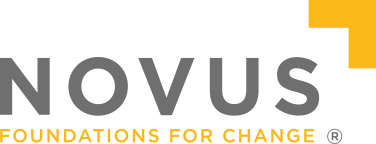Literacy and Prison: Why Basic Skills Are the Key to Rehabilitation
Adult Provision English & Maths Youth Provision

In prisons across the UK, education can be the first step on the path to rehabilitation. But for thousands of individuals in prison, low literacy skills create a significant barrier to change. Without the ability to read, write or communicate effectively, prisoners are often trapped in a cycle of reoffending and social exclusion.
Without the ability to read, write or communicate effectively and hone digital skills, prisoners are often trapped in a cycle of reoffending and social exclusion.
At Novus, we believe that improving literacy is one of the most powerful tools to engage learners in education, support rehabilitation, and reduce reoffending.
Low literacy in UK prisons
Literacy levels in UK prisons are extremely low. According to the Ministry of Justice, 57% of adult prisoners taking initial assessments had literacy levels below those expected of an 11-year-old. Many face difficulties with reading signage, understanding legal documents, or even filling out basic forms. These challenges extend far beyond the prison walls, they impact job opportunities, housing and accessing essential services upon release.
How poor literacy holds prisoners back
Having low literacy skills doesn’t just affect academic achievement, it also affects every aspect of life in prison and beyond including increasing the likelihood of reoffending. Prisoners with limited literacy often struggle to engage with rehabilitation programmes, complete job applications or communicate effectively with staff and fellow prisoners. This lack of confidence can lead to isolation, frustration and behavioural issues.
Also, the inability to navigate written information can hinder access to health services, legal representation, and post-release support, all of which are essential for successful reintegration into society.
Role of literacy programmes in prisons
Literacy is an essential functional skill that everyone has the right to learn, without it, learners have a limited number of opportunities available to them.
Literacy programmes in prison provide academic support and development as well as a sense of purpose, structure and self-worth. At Novus, we work across prisons in England and Wales to deliver high-quality, learner-centred education tailored to each individual’s needs.
By improving their confidence and ability in literacy, we help learners close their skills-gaps so they can find and retain employment upon release, in turn reducing reoffending rates.
Encouraging learners to gain essential literacy skills goes beyond their personal development. It also has broader benefits for the wider community.
Learners who engage in education are more likely to become rehabilitated members of society, creating a positive knock-on impact on their communities. Gaining essential skills in literacy will also equip learners with the skills necessary to communicate effectively, leading to stronger relationships and strengthening bonds within the community.
Literacy can also help learners to develop positive coping skills, giving them a positive outlet to express their feelings and emotions when they’re struggling with issues such as anxiety and depression.
Our approach goes beyond classroom teaching, we integrate real-life scenarios, digital skills, and one-to-one support to ensure that learners are not just gaining qualifications but acquiring the practical skills they need for life and work.
Spot-Lit workshop at HMYOI Wetherby
Spot-Lit Education, a company of professional actors and teachers, visited HMYOI Wetherby to run an interactive two-hour workshop on Shakespeare’s ‘Macbeth’ for young offenders preparing for their GCSEs. The workshop combined live performances of key scenes with facilitated discussions on themes like responsibility, manipulation, and guilt, helping learners engage deeply with the text and develop critical thinking and literacy skills.
This innovative approach not only enhanced their exam revision but also encouraged new interpretations and greater confidence in expressing ideas. Both learners and their English teacher reported positive impacts, highlighting how the experience broadened perspectives and improved classroom engagement.
First Night in Prison Project
The First Night in Prison project, a collaborative initiative by Novus and poet Mike Garry, aimed to engage hard-to-reach learners across North-East prisons through creative writing and poetry. Focused on the emotional experience of a prisoner's first night in custody, the project encouraged learners to reflect and express their feelings through writing, promoting literacy, empathy, and self-awareness.
Teachers and learners worked closely with Mike Garry in workshops that inspired a region-wide book featuring learner contributions, selected not just for quality but also for effort and growth. The project was widely praised for its impact on learner engagement, adaptability, and its ability to foster creativity and connection through education.
Teaching vulnerable groups
Prison populations are diverse, and some groups face additional barriers to learning. This includes people with neurodiverse needs, mental health problems, speakers of English as a second language, and those who have had negative past experiences with formal education.
At Novus, our educators are trained to identify and support these vulnerable learners, using inclusive teaching methods, adaptive resources, and personalised support plans. We believe that everyone, regardless of background or ability, deserves the opportunity to build essential skills and a better future.
Challenges to prison learning and how we can solve them
Prison learning comes with its own set of challenges that cannot be overlooked. Continuity is essential to keep learners engaged and ensure long-term development.
Many prisoners also face personal barriers, such as low self-confidence, anxiety, or past negative experiences with education. These challenges can make participating in classroom activities daunting, but evidence shows that education can have a positive impact on wellbeing, helping learners develop resilience, motivation, and a sense of purpose.
Creating safe, inclusive learning spaces and providing consistent, tailored support are key to overcoming these obstacles. At Novus, our educators use one-to-one mentoring, adaptive resources, and personalised teaching approaches to ensure every learner can succeed. By addressing these challenges, learners can fully engage in education, gain confidence, and take meaningful steps toward rehabilitation and reintegration.
Helping learners build a better future through education
When learners improve their literacy, they gain more than just skills, they gain hope, independence, and the chance to rewrite their stories. Education equips people with the tools to make better choices, reconnect with their families, and contribute positively to their communities.
At Novus, we see the impact of literacy education every day. From learners writing their first letters home, to gaining employment after release, or progressing to higher levels of study, these successes demonstrate the transformative power of basic skills education.
Improving literacy in prisons is not just about reducing reoffending; it’s about the true potential of learners. By supporting individuals to develop the basic skills they were denied earlier in life, we open doors to rehabilitation, reintegration, and lasting change. At Novus, we remain committed to delivering high-quality prison education that builds brighter futures, for learners, their families, and society as a whole.
To learn more about how we engage learners in our literacy provision, take a look at our news section.


